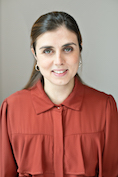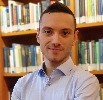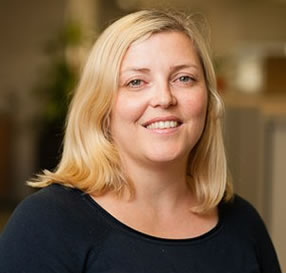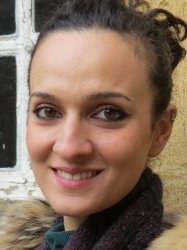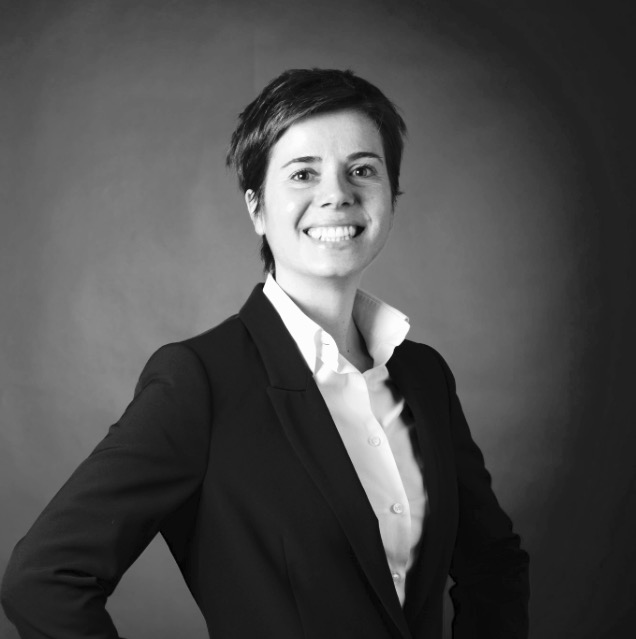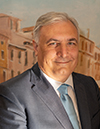Studying at the University of Verona
Here you can find information on the organisational aspects of the Programme, lecture timetables, learning activities and useful contact details for your time at the University, from enrolment to graduation.
Academic calendar
The academic calendar shows the deadlines and scheduled events that are relevant to students, teaching and technical-administrative staff of the University. Public holidays and University closures are also indicated. The academic year normally begins on 1 October each year and ends on 30 September of the following year.
Course calendar
The Academic Calendar sets out the degree programme lecture and exam timetables, as well as the relevant university closure dates..
| Period | From | To |
|---|---|---|
| Primo semestre (lauree) | Sep 19, 2022 | Jan 13, 2023 |
| Periodo generico | Oct 1, 2022 | May 31, 2023 |
| Secondo semestre (lauree) | Feb 20, 2023 | May 31, 2023 |
| Session | From | To |
|---|---|---|
| Sessione invernale (lauree) | Jan 16, 2023 | Feb 17, 2023 |
| Sessione estiva (lauree) | Jun 1, 2023 | Jul 14, 2023 |
| Sessione autunnale (lauree) | Aug 28, 2023 | Sep 22, 2023 |
| Session | From | To |
|---|---|---|
| Sessione autunnale | Dec 5, 2022 | Dec 7, 2022 |
| Sessione invernale | Apr 4, 2023 | Apr 6, 2023 |
| Sessione estiva | Sep 5, 2023 | Sep 7, 2023 |
Exam calendar
Exam dates and rounds are managed by the relevant Economics Teaching and Student Services Unit.
To view all the exam sessions available, please use the Exam dashboard on ESSE3.
If you forgot your login details or have problems logging in, please contact the relevant IT HelpDesk, or check the login details recovery web page.
Should you have any doubts or questions, please check the Enrollment FAQs
Academic staff
 giovanna.caramia@univr.it
giovanna.caramia@univr.it
 silvano.corbella@univr.it
silvano.corbella@univr.it
 simona.fiore@univr.it
simona.fiore@univr.it
 tamara.fioroni@univr.it
tamara.fioroni@univr.it
 maurizio.malpede@univr.it
maurizio.malpede@univr.it
 martina.menon@univr.it
martina.menon@univr.it
 fabio.sartori@univr.it
fabio.sartori@univr.it
 alex.sclip@univr.it
alex.sclip@univr.it
 chiara.zamboni_01@univr.it
chiara.zamboni_01@univr.it
Study Plan
The Study Plan includes all modules, teaching and learning activities that each student will need to undertake during their time at the University.
Please select your Study Plan based on your enrollment year.
1° Year
| Modules | Credits | TAF | SSD |
|---|
2° Year activated in the A.Y. 2023/2024
| Modules | Credits | TAF | SSD |
|---|
3° Year It will be activated in the A.Y. 2024/2025
| Modules | Credits | TAF | SSD |
|---|
2 modules among the following| Modules | Credits | TAF | SSD |
|---|
| Modules | Credits | TAF | SSD |
|---|
| Modules | Credits | TAF | SSD |
|---|
2 modules among the following| Modules | Credits | TAF | SSD |
|---|
Legend | Type of training activity (TTA)
TAF (Type of Educational Activity) All courses and activities are classified into different types of educational activities, indicated by a letter.
Type D and Type F activities
SOFT SKILLS
Find out more about the Soft Skills courses for Univr students provided by the University's Teaching and Learning Centre: https://talc.univr.it/it/competenze-trasversali
CONTAMINATION LAB
The Contamination Lab Verona (CLab Verona) is an experiential course with modules on innovation and enterprise culture that offers the opportunity to work in teams with students from all areas to solve challenges set by companies and organisations.
Upon completion of a CLab, students will be entitled to receive 6 CFU (D- or F-type credits).
Find out more: https://www.univr.it/clabverona
PLEASE NOTE: In order to be admitted to any teaching activities, including those of your choice, you must be enrolled in the academic year in which the activities in question are offered. Students who are about to graduate in the December and April sessions are therefore advised NOT to undertake extracurricular activities in the new academic year in which they are not enrolled, as these graduation sessions are valid for students enrolled in the previous academic year. Therefore, students who undertake an activity in an academic year in which they are not enrolled will not be granted CFU credits.
| years | Modules | TAF | Teacher |
|---|---|---|---|
| 1° 2° 3° | Ciclo tematico di conferenze: “Conflitti. Riconoscere, prevenire, gestire” - 2022/2023 | D |
Riccardo Stacchezzini
(Coordinator)
|
| 1° 2° 3° | Securitisation transactions - Focus on securitisations of OF NPL / NPE /UTP | D |
Michele De Mari
(Coordinator)
|
| 1° 2° 3° | The Fashion Lab - 2022/23 | D |
Caterina Fratea
(Coordinator)
|
| years | Modules | TAF | Teacher |
|---|---|---|---|
| 1° 2° 3° | Economic Thinking and Thesis Writing | D |
Marco Minozzo
(Coordinator)
|
| 1° 2° 3° | English for Business and Economics - Bachelor's Degrees | D |
Marco Minozzo
(Coordinator)
|
| 1° 2° 3° | Data Analysis Laboratory with R (Verona) | D |
Marco Minozzo
(Coordinator)
|
| 1° 2° 3° | Data Visualization Laboratory | D |
Marco Minozzo
(Coordinator)
|
| 1° 2° 3° | Python Laboratory | D |
Marco Minozzo
(Coordinator)
|
| 1° 2° 3° | Data Science Laboratory with SAP | D |
Marco Minozzo
(Coordinator)
|
| 1° 2° 3° | Advanced Excel Laboratory (Verona) | D |
Marco Minozzo
(Coordinator)
|
| 1° 2° 3° | Excel Laboratory (Verona) | D |
Marco Minozzo
(Coordinator)
|
| 1° 2° 3° | Piano di marketing 2022/23 | D |
Fabio Cassia
(Coordinator)
|
| 1° 2° 3° | Programming in Mathlab | D |
Marco Minozzo
(Coordinator)
|
| 1° 2° 3° | Programming in SAS | D |
Marco Minozzo
(Coordinator)
|
| years | Modules | TAF | Teacher |
|---|---|---|---|
| 1° 2° 3° | Business & predictive analytics for International Firms (with Excel Applications) - 2022/23 | D |
Angelo Zago
(Coordinator)
|
| years | Modules | TAF | Teacher |
|---|---|---|---|
| 1° 2° 3° | The Chartered Accountant as a business consultant | D |
Riccardo Stacchezzini
(Coordinator)
|
| years | Modules | TAF | Teacher |
|---|---|---|---|
| 1° 2° 3° | Project "B-EDUCATION: ideas that count" - 1 cfu | D |
Roberto Bottiglia
(Coordinator)
|
| 1° 2° 3° | Project "B-EDUCATION: ideas that count" - 2 cfu | D |
Roberto Bottiglia
(Coordinator)
|
Python Laboratory (2022/2023)
Teaching code
4S011377
Teacher
Coordinator
Credits
3
Also offered in courses:
- Python Laboratory of the course Bachelors' degree in Business Administration and Management
- Python Laboratory of the course Master’s degree in Marketing and Corporate Communication
- Python Laboratory of the course Master’s degree in Banking and Finance
- Python Laboratory of the course Master’s degree in Economics and Data Analysis
- Python Laboratory of the course Master's degree in Corporate governance and business administration
- Python Laboratory of the course Bachelor's degree in Business Innovation and Economics
- Python Laboratory of the course Bachelor's degree in Economics, Firms and International Markets
- Python Laboratory of the course Master’s degree in Management and business strategy
- Python Laboratory of the course Master’s degree in International Economics and Business
Language
Italian
Scientific Disciplinary Sector (SSD)
NN - -
Period
Periodo generico dal Oct 1, 2022 al May 31, 2023.
Learning objectives
The course aims at improving the computational and programming skills of the students and at providing instruments that might be useful for the subsequent thesis work. The activity will allow students to improve the knowledge of a programming language that is highly requested in some sectors of the job market.
Program
Python is a widely used high-level programming language for general-purpose programming. It is an interpreted language, it has a design philosophy that emphasizes code readability and it has a syntax that allows programmers to express concepts in fewer lines of code than might be used in other languages, allowing new users to learn it in a few days. Python features a dynamic type system and automatic memory management and supports multiple programming paradigms, including object-oriented, imperative, functional programming, and procedural styles. It has a large and comprehensive standard library and it can easily be integrated with other programming languages, in particular with R. Python interpreters are available for many operating systems, allowing Python code to run on a wide variety of systems.
Python has gained wide popularity mainly for its use in the management and analysis of large data sets (data science). Today, R and Python are the two most widely used programming languages among data scientists. Both of them have rapidly advanced over the past few years. For these languages there exist many libraries for collecting, handling, visualizing and analyzing large data volumes and for implementing advanced machine learning models. Python is used in many organizations like NASA, Yahoo and Google. Python is open source and free software and has a community-based development model. Other information can be found at https://www.python.it/ and https://www.python.org/
The program of the course will start with an introduction to the software Python and its main functions. Then, some of the topics encountered in mathematical and statistic courses will be considered, as for example, matrix algebra, optimization and interpolation. Arguments will be presented mainly through examples.
Bibliography
Didactic methods
The course "Python Laboratory" is an optional "type f" activity, which allows to students to obtain 3 CFU, once a final examination is passed. In particular:
- The course is available only to students that are regularly enrolled to the academic year 2022/2023.
- All CdL and CdLM students of the School of Economics and Management can register. In case of limitations to the total number of places available, requests for participation will be considered following the registration order, considering that priority will be given to CdLM students, in particular to students of the Master’s degree in Economics and Data Analysis, and of the Master’s degree in Banking and Finance.
- Participation to the course does not require any particular background knowledge of the software Python.
- The lessons will be delivered online through Zoom meetings. All the lessons will be registered for later viewing.
- The course will take place in the first semester; there will be just one course.
- The course consists of 18 hours of exercise lessons and tutorial activity (plus 2 hours of final examination).
The tentative calendar of the lessons will be available soon.
Tutor: dott. Andrea Cuoghi
Registrations are open from the 1st of October 2022 to the 30th of November 2022.
Please, register through the elearning platform (Moodle). Students without a university IT account can ask to be registered by writing an email to the coordinator of the course. All other students must use the procedure on Moodle.
Learning assessment procedures
The final examination, which will very likely take place online through a Zoom meeting, will consist in a written exam, followed by an oral examination, if necessary, on the use of the software Python. There will be just one date for the final examination.
Exam language
Italiano
Career prospects
Module/Programme news
News for students
There you will find information, resources and services useful during your time at the University (Student’s exam record, your study plan on ESSE3, Distance Learning courses, university email account, office forms, administrative procedures, etc.). You can log into MyUnivr with your GIA login details: only in this way will you be able to receive notification of all the notices from your teachers and your secretariat via email and soon also via the Univr app.
 045 802 8224
045 802 8224









